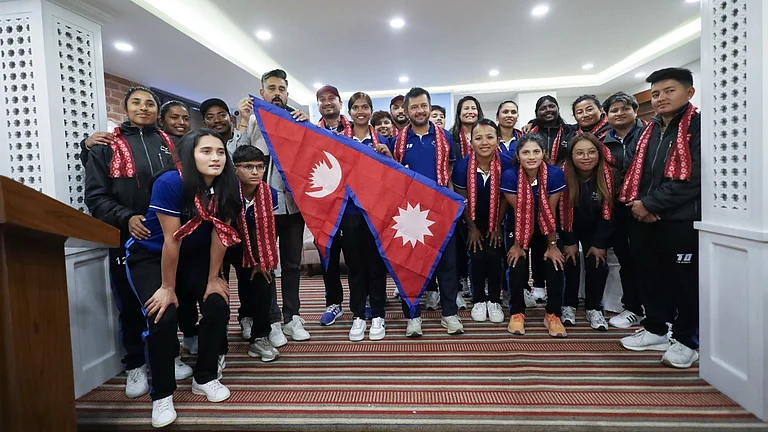The constitution of the Delimitation Commission in March last year for the readjustment of boundaries of constituencies had put J&K politicians in great unease. National Conference, Peoples Democratic Party, Peoples Conference and even Apni Party had doubts about the creation of the delimitation fearing it will give more seats to the Jammu region and readjust seats in such a way in Kashmir that no political party will get a majority in the Assembly.
They now say the delimitation commission has done exactly the same thing they feared and it has given to what Peoples Conference’s Sajad Lone says, a shock for those who believe in democracy
According to the reports delimitation panel in its draft recommendation has proposed six additional seats for the Jammu region and one for Kashmir Valley even though the Kashmir region has more population than Jammu. This would make total seats in Jammu 43, Kashmir valley 47. But the delimitation commission has also reserved nine seats for ST and seven for SC making political parties say the Commission was created “to serve BJPs political interests by dividing people along religious and regional lines.”
The initial reaction from Kashmir based political parties is of shock and disbelief.
“It is deeply disappointing that the commission appears to have allowed the political agenda of the BJP to dictate its recommendations rather than the data which should have been it’s only consideration. Contrary to the promised “scientific approach” it’s a political approach,” National Conference vice-president and former Chief Minister Omar Abdullah said.
“This commission has been created simply to serve BJPs political interests by dividing people along religious and regional lines. The real game plan is to install a government in J&K which will legitimise the illegal & unconstitutional decisions of August 2019,” says PDP president and former Chief Minister Mehbooba Mufti.
Peoples Conference chairman Sajad Lone tweeted: “The recommendations of the delimitation commission are totally unacceptable. They reek of bias. What a shock for those who believe in democracy.”
The newly created Union Territory of J&K was the only region in the country delimitation exercise is being carried out.
The J&K Assembly was dissolved in November 2018 and the region was first under Governor’s rule and now under the President’s rule since June 2018. The government has been saying the elections in J&K will be held after the Delimitation Commission completes its exercise and gives its report.
According to J&K Reorganisation Act that the number of seats in the Assembly of J&K would be increased from 107 to 114, 24 of which are reserved for Pakistan occupied Kashmir (PoK) while the election will be held for 90 seats.
Before August 5, the State of Jammu and Kashmir had 111 seats including 24 reserved for PoK and elections were held for 87 seats. With the creation of Ladakh as Union Territory, four seats of the region were reduced and the Assembly was left with 83 seats. In the previous Assembly, Kashmir had 46 seats, Jammu 37 and Ladakh four.
Last Delimitation Commission was set up in 1995 with Justice (Retd) K K Gupta as its Chairman when the State was under the President’s rule. Gupta Commission had increased J&K’s Assembly seats from 76 to the present 87. Of 76 seats, Jammu had 32, Kashmir 42 and Ladakh 2. Of 87 seats of J&K Assembly, Kashmir has 46 seats, Jammu 37 and four in the Ladakh division.
According to the 2011 census, the population of Kashmir Valley was 68,88,475 with 96.40% Muslims. Jammu division had a population of 53,78,538, with Hindus 62. 55 %, Muslims 33.45 % while Ladakh region has 2,74,289 people residing there, 46.40% of them Muslims, 12.11% Hindus and 39.67% Buddhists.
In 2002 the then government led by chief minister Dr. Farooq Abdullah chose to freeze delimitation until 2026 by bringing constitutional amendment in the Jammu Kashmir Representation of the People’s Act 1957 and Section 47(3) of the Constitution of J&K.
Dr Abdullah had brought a constitutional amendment in section 47 of J&K Constitution after the similar amendment was passed by the Centre in the Parliament in case of Article 327. The Panthers Party chairman Prof. Bhim Singh had appealed against the amendment before the High Court, which was dismissed by the latter.
Prof. Singh filed SLP in the Supreme Court and the Apex Court also dismissed the SLP in 2010 saying there is “express constitutional bar to any challenge being made to the delimitation law which is made under the constitutional provisions.” The Apex Court also said the amendment to section 47 (3) of the constitution of J&K doesn’t violate the basic structure of the constitution.


























